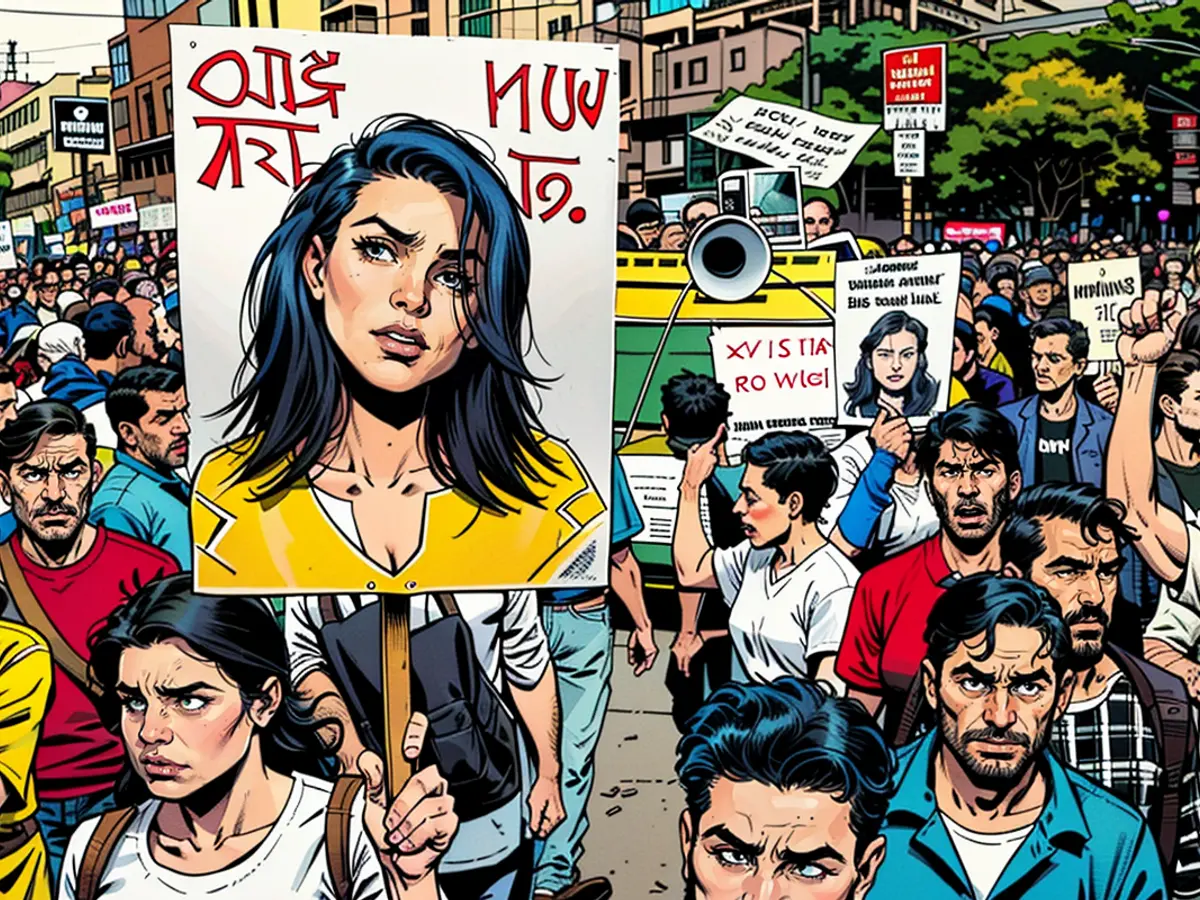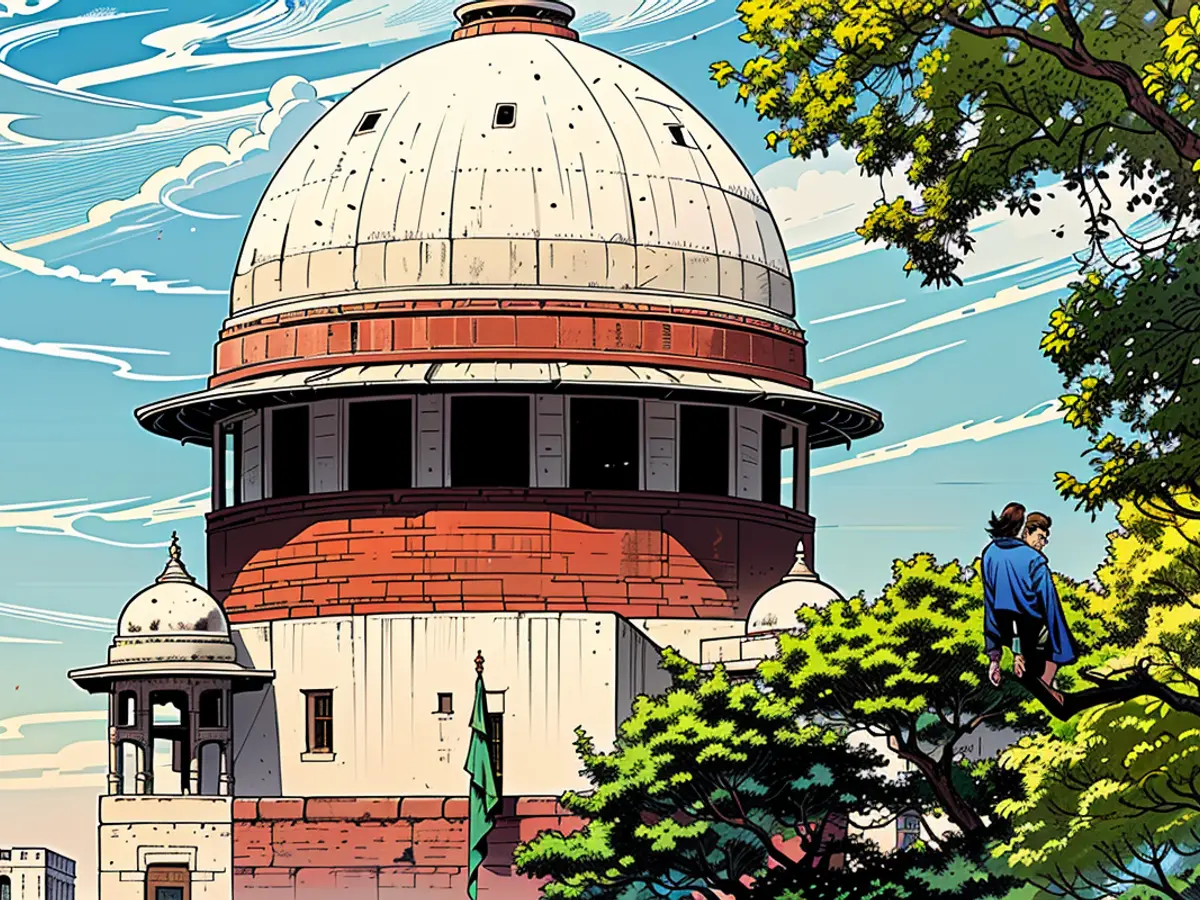In India, marital rape remains an uncriminalized act. The government justifies its reluctance to amend this law as being "overly severe."
In India, it isn't regarded as rape when a husband coerces his wife into sexual activities if she's above 18 years old, owing to an exemption in a law inherited from the British colonial era. Most modern and common law countries have abolished this exclusion - for instance, Britain outlawed marital rape in 1991, and it's illegal in all 50 U.S. states. However, approximately 40 nations do not yet have legislation addressing the matter of marital rape, and even among those that do, the repercussions for non-consensual sexual activities within marriage are considerably lighter than those imposed on other rape cases. According to the United Nations Population Fund's 2021 State of World Population review, this is the case.
Activists in India have long been fighting against this exception, with the country’s supreme court presently reviewing petitions seeking to modify it, following the Delhi High Court's divisive judgement on the issue in 2022. Despite this, the Indian government's Ministry of Home Affairs argued in formal opposition to the petitions that a man should be held accountable for forcing himself upon his wife, as doing so would "seriously jeopardize the conjugal relationship" and "have far-reaching implications for the institution of marriage."
The government asserted that classifying marital rape as a criminal offense could be considered overly harsh and hence disproportionate. Advocates for criminalization expressed no surprise at the government's arguments, but they deemed it a step back for women living in a deeply patriarchal society in which sexual violence is rampant.
In July, the Indian government revamped its 164-year-old penal code with new criminal laws, but the exemption for marital rape was maintained. India has encountered difficulties in addressing high rates of violence against women, with several high-profile rape cases provoking nationwide outrage and international discussion.
The government's rejection of the campaign to criminalize marital rape came two months following a trainee doctor's rape and murder in the Indian city of Kolkata, which sparked widespread outrage and protests across the country. A man was charged with her rape and murder earlier this week, according to a Central Bureau of Investigation source.
'Consent is consent'
In their argument against criminalization, the Indian government pointed out that a woman's consent is safeguarded in marriage; however, there's "a continuing expectation, by either of the spouses, to have reasonable sexual access from the other." According to the government, although these expectations do not justify coercion or sexual violence, the consequences of such acts within marriage differ from those outside of it. Moreover, they claimed that existing laws on sexual and domestic violence were adequate to "protect consent within marriage."
Mariam Dhawale, the General Secretary of the All India Democratic Women's Association – one of the petitioners advocating for criminalization – stated that consent inside and outside of marriage is "not two different things." "Consent is consent," she said. "In our country, a woman is not perceived as an independent human being or an independent citizen. She is considered as an appendage to the husband, she is subordinate, she is not regarded as a separate identity as such."
Dhawale asserted that marital rape is a significant factor in the physical and sexual violence reported by women seeking assistance from her organization, but they often hesitate to come forward due to the widespread belief that it is not considered a crime.
According to Bharadwaj, shifting this mindset will require more than just changing a law, but it is the "first step." "It's a cultural revolution," she said. "Until and unless you make a bold statement that this is not acceptable, the culture will not shift, since by not acknowledging this behavior as a crime, the culture is accepting of this violence."
Current laws "not sufficient"
Women in India alleging rape by their husbands have avenues for possible legal action, but advocates for criminalization argue that the present laws are insufficient. Women can file for a restraining order under civil law or bring charges under Section 354 of India's Penal Code, which covers sexual assault short of rape, or Section 498A, which is intended to punish cruelty against women specifically in the context of dowry, in addition to the Domestic Violence Act in India.
However, the laws are open to interpretation, and women face hurdles even when filing initial police complaints, according to recent studies. In May, a judge in Madhya Pradesh dismissed a woman's complaint of "unnatural sexual activity" by citing the country's marital rape exemption and stating in his judgement that in such instances, "the wife's consent becomes irrelevant."
Dhawale claimed that women often remain trapped in abusive households with no means of escape, particularly if they are financially dependent on their husband. "We don't have any safe facilities, shelters, or institutions," she said. "So she has to stay in the same place. She cannot complain, as no one will stand by her, unless and until it's recognized as a crime."
A woman who previously disclosed that she was sexually abused by her husband told CNN that she believes rape within marriage should be criminalized because it "would empower women to speak out and stop their abuse."
Previously, another lady spoke to CNN, expressing her fear of leaving her abusive husband due to financial constraints and lack of support for their three kids. She indicated that outlawing marital rape is vital for individuals like her who do not have a means of escape.
"Disruptions in Marital Harmony"
In a significant decision in 2017, India's Supreme Court elevated the age of marital consent from 15 to 18.
Defending child marital rape during that case, senior advocate Jayna Kothari argued that the government cited the sanctity of marriage as a reason not to raise the age of consent. However, the Supreme Court disputed this claim.
Kothari further stated that acknowledging marital rape is vital for promoting gender equality within a marriage.
Likewise, Dhawale explained that it is actually the aggressor within the marriage who disturbs the harmony by committing violence, not the woman seeking justice.
The primary concern among the government and men's rights groups is that implementing a marital rape law would result in women filing false rape accusations against their husbands.
Kothari pointed out that the process of reporting sexual violence is already challenging for women, even with supportive laws in place.
"The notion of domestic violence being misused is largely unfounded," she said, "as it requires considerable courage for women to report such incidents."
She also added that an increase in marital rape reports is not expected, and the process of reporting such incidents would still remain difficult.
CNN's Rhea Mogul provided additional reporting.
In the global context, India is one of the approximately 40 nations that have yet to address marital rape legislatively, as highlighted by the United Nations Population Fund's 2021 State of World Population review. Activists and women's rights advocates around the world continue to push for the criminalization of marital rape, recognizing that consent is consent, regardless of the marital status of the individuals involved.








